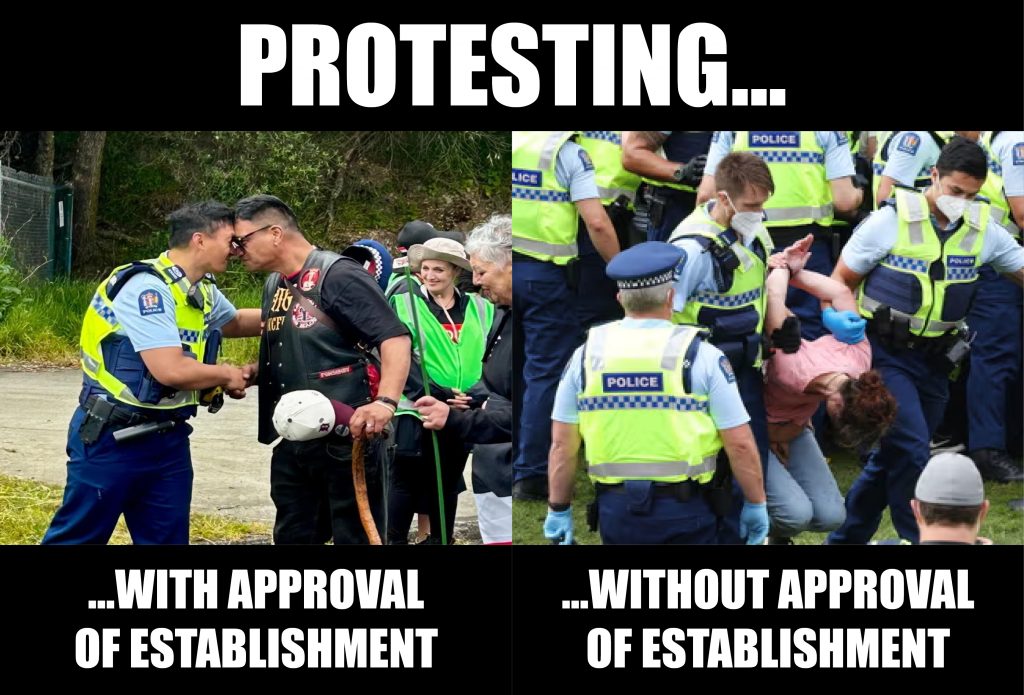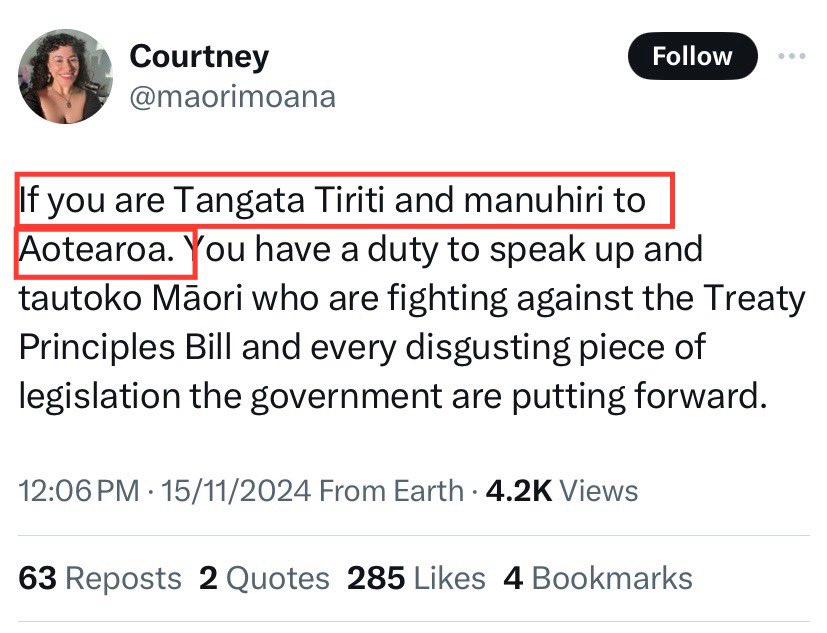
The hikoi protests to Wellington earlier this month were astonishing for several reasons. The foremost of these was the reaction of the political establishment, who came out in full support. Members of Parliament, media and academics all voiced support for the hikoi protests. This caused some to wonder why the Covid mandate protests of 2022 didn’t get the same treatment.
The hikoi protests had a lot in common with the Covid mandate protests of 2022 – and there were some major differences as well.
The commonalities were mostly on the surface.
Both protests attracted large numbers of people. The hikoi protests got 42,000 attendees, according to RNZ. The Covid mandate protests might not have got so many, perhaps closer to 1,000 at peak, but these attracted many of the same people on multiple days, for a cumulative total in five figures. Both protests were the biggest political event in the country at the time.
Both protests also attracted a diverse cross-section of the New Zealand public. The Covid mandate protests were decried as “white supremacist”, but in one poll 27.2% of them were found to be Maori. The hikoi protests were heavily Maori, but a high proportion of them were white. Both attracted a range of ages. Men and women were roughly equally present in both.
The differences went much deeper.
One of the primary differences was that the hikoi protests were against David Seymour in particular, who was seen as the figurehead behind the Treaty Principles Bill. The Covid mandate protests were against the Sixth Labour Government in general. Another major difference was that the hikoi protests were organised by The Maori Party, whereas the Covid mandate protests were organised in a grassroots manner.
Both of these feed into the most striking and obvious difference, which was how the Establishment reacted to the protests.
The Covid mandate protests were heavily opposed from the beginning. Even during the convoy phase, Establishment media figures decried the events, smearing the protesters as “cookers” and “white supremacists”. NPC spaces such as Reddit declared the protesters to be the enemies of the New Zealand people.
When the Covid mandate protesters got to Wellington, they were met by Trevor Mallard turning on the lawn sprinklers and blaring obnoxious music over loudspeakers. The propaganda campaign against them intensified, with news reports breathlessly accusing them of multiple property and violence crimes. A whirlwind of hate against them was whipped up by the mainstream media.
No sitting MPs met with the Covid mandate protesters (Winston Peters did, but he was not then an MP). The closest any of them came was watching from the Beehive. Eventually, the Establishment set the Police on the protesters, using violence to break up the encampment and arrest anyone remaining.
The hikoi protests, by contrast, were heavily supported. Smiling Police officers hongied with gang members on the hikoi. The mainstream media fell over itself to promote the hikoi in the most positive possible way. Hikoi organisers were given primetime slots and softball questions, and their opponents slandered.
This disparity in treatment can be readily explained by considering the agenda of the ruling class, which is principally to divide and conquer the masses.
The Covid mandate protests saw several sections of the New Zealand public come together to oppose the ruling class. Honest observers were astonished by how friendly the protesters were, and how little animosity there was between various groups. The intense feelings of solidarity at the Parliament lawn encampment was like nothing seen in New Zealand political space this century. Those present described it as being like a festival.
This is the last thing the Establishment wants.
The hikoi protests, by contrast, sought to divide New Zealand into two opposing groups: indigenous and settlers. The indigenous are the good guys, the settlers the bad guys. This narrative of division sows distrust and resentment.
This is exactly what the Establishment wants.
The New Zealand political establishment wants the New Zealand people at each other’s throats, too busy fighting each other to realise their common enemy. To that end, they will support any narrative that seeks to divide the New Zealand people into warring sub-groups, and will reject any narrative that seeks to bring the New Zealand people together.
*
For more of VJM’s ideas, see his work on other platforms!
For even more of VJM’s ideas, buy one of his books!
*
If you enjoyed reading this piece, buy a compilation of our best pieces from previous years!
Best VJMP Essays and Articles of 2023
Best VJMP Essays and Articles of 2022
Best VJMP Essays and Articles of 2021
Best VJMP Essays and Articles of 2020
Best VJMP Essays and Articles of 2019
Best VJMP Essays and Articles of 2018
Best VJMP Essays and Articles of 2017
*
If you would like to support our work in other ways, make a donation to our Paypal! Even better, buy any one of our books!






